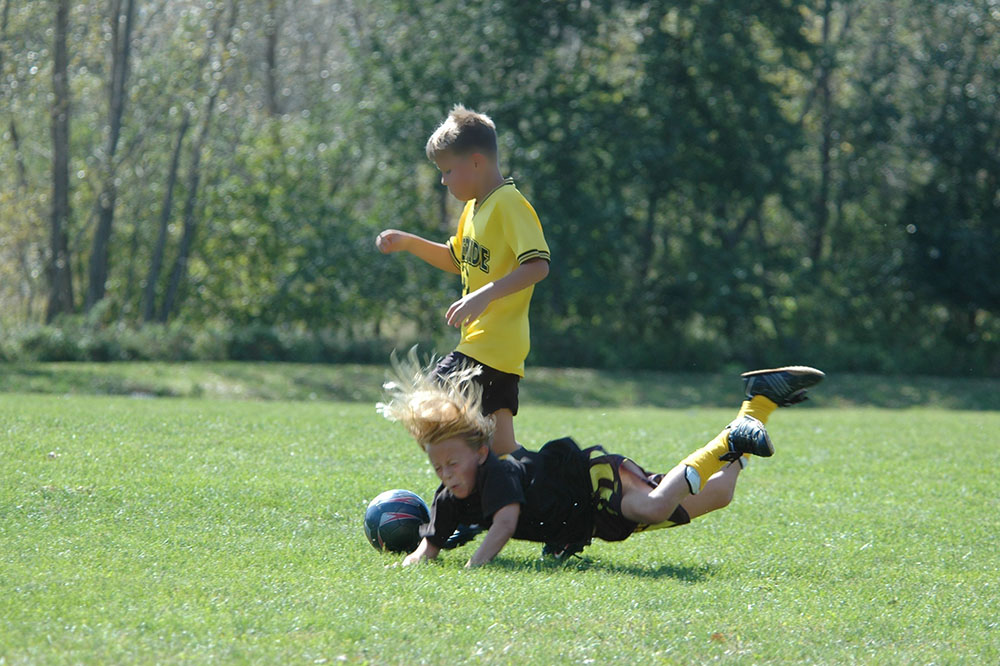Like most people, you may be wondering, “what exactly is a concussion?” A concussion is a mild type of traumatic brain injury (mTBI) that can interfere with normal brain functions. In most cases, concussions are not obvious, with less than 10% of cases involving loss of consciousness. Even though they usually test more severe injuries, standard neuroimaging such as MRIs and CT scans are common after concussions.
Contrary to what many people believe, a concussion is not a single, sudden traumatic event. It occurs as a result of various biochemical brain changes following a traumatic event.
People suspected of suffering a concussion should undergo a medical evaluation at the earliest opportunity. Until completion of the evaluation, the person should be assumed to have suffered a concussion. They should not participate in athletic play, drive, or operate large machinery, nor should they be allowed in situations that may cause further injury or endanger others.
These precautions are especially important when it comes to athletes who are suspected of having suffered a concussion. They should be immediately evaluated and monitored over the next day or two before returning to play.
Concussion Causes and Risk Factors
Two types of trauma lead to concussions:
- A jolt, blow, or bump to the head (e.g., from a collision or fall resulting in direct impact)
- A blow to the body or a fall that causes whiplash (sudden back and forth movement of the head). While there may not be a direct hit to the head, the impact jostles the brain inside the skull.
Sports, assaults, motor vehicle trauma and falls are the leading causes of concussions.
Risk factors for concussions include:
- Sport, position, and style of play (e.g., football, lacrosse, hockey, wrestling, etc.)
- A previous concussion
- Age and gender
- Learning and mood disorders
- Migraines
- Risky behavior and activities (e.g., drunk driving, failure to use helmets appropriately)
Concussion Symptoms
The symptoms of a concussion can be:
- Physical:
-
- Headache (this is the most common symptom)
- Vomiting and nausea
- Dizziness
- Visual problems such as blurry vision
- Tingling or numbness
- Balance problems
- Fatigue
- Sensitivity to light and noise
- Cognitive
-
- Difficulty processing new information
- Impaired concentration
- Generally slower thinking
- Emotional
-
- Irritability
- Sadness
- Increased emotionality
- Nervousness and anxiety
- Sleep-related
-
- Have difficulty falling asleep
- Feel sleepy during the day
- Sleep fewer hours than usual
- Sleep more hours than usual
A person that has suffered a head injury concussion should be immediately evaluated by a coach or athletic trainer. In the event a concussion is suspected, the patient should undergo further evaluation by a medical professional.
Concussion diagnosis involves:
- Patient and witness interviews to determine the injury force, location, and resulting loss of consciousness
- Physical exam and cognitive assessment
- Neuroimaging, e.g., CT scan and MRI
- Evaluation by a neuropsychologist
The key to recovery from a concussion is adequate rest. Be sure to follow guidelines for recovery, like:
- Avoid high-risk physical activities and limit physical activity
- Sleep well and avoid taxing mental activities
- Consult your doctor regarding medications
- Practice good nutrition
- Consider acupuncture
For further concussion treatment and recovery recommendations, consult a concierge medicine practitioner, family doctor, pediatric doctor, concierge doctor, or concussion specialist at Diamond Physicians.
